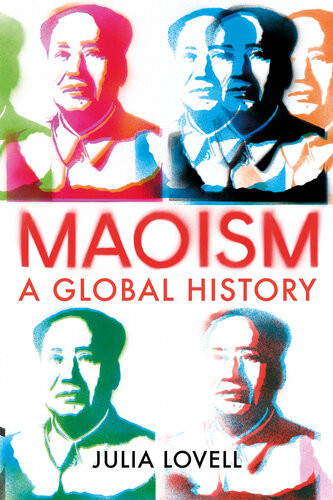

Most ebook files are in PDF format, so you can easily read them using various software such as Foxit Reader or directly on the Google Chrome browser.
Some ebook files are released by publishers in other formats such as .awz, .mobi, .epub, .fb2, etc. You may need to install specific software to read these formats on mobile/PC, such as Calibre.
Please read the tutorial at this link: https://ebookbell.com/faq
We offer FREE conversion to the popular formats you request; however, this may take some time. Therefore, right after payment, please email us, and we will try to provide the service as quickly as possible.
For some exceptional file formats or broken links (if any), please refrain from opening any disputes. Instead, email us first, and we will try to assist within a maximum of 6 hours.
EbookBell Team

4.7
86 reviewsWINNER OF THE 2019 CUNDILL HISTORY PRIZE
SHORTLISTED FOR THE BAILLIE GIFFORD PRIZE FOR NON-FICTION 2019
SHORTLISTED FOR THE NAYEF AL-RODHAN PRIZE FOR GLOBAL UNDERSTANDING
SHORTLISTED FOR DEUTSCHER PRIZE
LONGLISTED FOR THE 2020 ORWELL PRIZE FOR POLITICAL WRITING
For decades, the West has dismissed Maoism as an outdated historical & political phenomenon. Since the 1980s, China seems to have abandoned the utopian turmoil of Mao’s revolution in favour of authoritarian capitalism. But Mao & his ideas remain central to the People’s Republic & the legitimacy of its Communist government. With disagreements & conflicts between China & the West on the rise, the need to understand the political legacy of Mao is urgent & growing.
The power & appeal of Maoism have extended far beyond China. Maoism was a crucial motor of the Cold War: it shaped the course of the Vietnam War (& the international youth rebellions that conflict triggered) & brought to power the murderous Khmer Rouge in Cambodia; it aided, & sometimes handed victory to, anti-colonial resistance movements in Africa; it inspired terrorism in Germany & Italy, & wars & insurgencies in Peru, India & Nepal, some of which are still with us today – more than forty years after the death of Mao.
In this new history, Julia Lovell re-evaluates Maoism as both a Chinese & an international force, linking its evolution in China with its global legacy. It is a story that takes us from the tea plantations of north India to the sierras of the Andes, from Paris’s fifth arrondissement to the fields of Tanzania, from the rice paddies of Cambodia to the terraces of Brixton.
Starting with the birth of Mao’s revolution in northwest China in the 1930s & concluding with its violent afterlives in South Asia & resurgence in the People’s Republic today, this is a landmark history of global Maoism.
°°°
Julia Lovell is the author of The Great Wall.